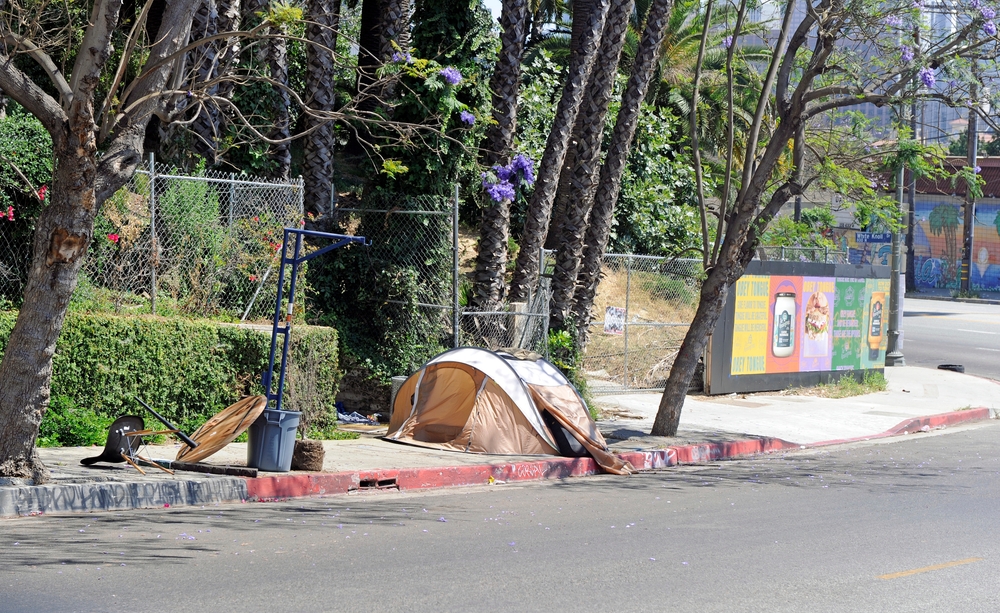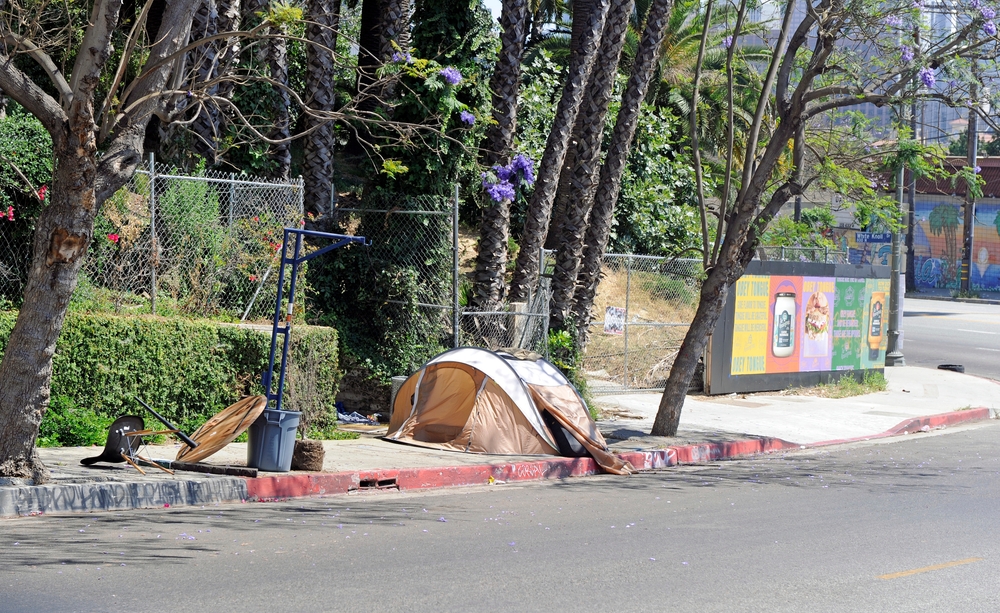Homeless man who found $10,000 check received life-changing reward after returning it to owner

Every so often, a story cuts through the noise of bad headlines and reminds us of the quiet power of human character. It is not a story of wealth or privilege, but of a man who had nothing and still chose honesty when no one was watching. In a world quick to judge people by their circumstances, the actions of one homeless man in Connecticut forced strangers, neighbors, and the internet at large to pause and reconsider what integrity truly looks like.
This is the story of Elmer Alvarez, who stumbled upon a $10,000 check while living on the streets. He could have seen it as his way out, a chance to escape the cold grip of homelessness. Instead, he chose to return it. That single decision did more than surprise the woman who lost it—it set in motion a series of events that transformed both of their lives and challenged the way many of us see those struggling without a home.

A Decision That Defined Character
When Elmer Alvarez stumbled upon a check for $10,000 on the streets of New Haven, Connecticut, he was living through some of the hardest circumstances a person can face. Homeless, with no place to call his own and limited options for survival, most people would assume the temptation to cash the check would be overwhelming. Ten thousand dollars could have meant food, clothing, shelter, or even a fresh start. But Alvarez did not hesitate. Instead of thinking about what he could gain, his immediate thought was about the rightful owner. “It never crossed my mind because I made a decision to turn my life over. I’ve been clean for three years,” he told CBS News. His words reveal a powerful truth: integrity is not defined by comfort or security, but by the choices we make in the absence of both. For Elmer, this was not just about finding money—it was about staying true to a decision he had already made about the kind of man he wanted to be.
That decision brought him face to face with Roberta Hoskie, the real estate broker who had lost the check. Hoskie later admitted she expected to meet “a guy all nice, clean shaven and blue suit,” not someone who had been surviving without a home. When she met Elmer, she was struck by the contrast between her assumption and the reality in front of her. In that moment, a stereotype collapsed. Society often paints people experiencing homelessness as irresponsible, untrustworthy, or incapable of making sound moral choices. Yet here was a man who, despite immense personal struggle, had chosen honesty when dishonesty could have brought him instant relief. His actions showed that character is not determined by one’s address or bank account but by the values a person chooses to uphold even when no one is watching.
What followed after their meeting would change both of their lives, but the heart of the story begins with this decision. Elmer’s choice didn’t just return a piece of paper to its owner—it offered proof that humanity and compassion persist even in the harshest of conditions. It demonstrated that doing the right thing requires no wealth, only character. And in a world quick to define people by what they lack, his choice became a reminder that dignity is not something that can ever be taken away.

The Bigger Picture of Homelessness
Elmer’s story shines brighter when placed against the stark backdrop of homelessness itself. Homelessness is not a fringe issue; it is a global epidemic rooted in multiple, often interconnected causes. Economic downturns, rising costs of living, unemployment, untreated mental illness, addiction, family breakdown, and lack of social support systems can all converge to push someone onto the streets. The line between stability and homelessness is much thinner than many believe. A missed paycheck, a medical emergency, or the collapse of a support network can unravel the life someone has worked years to build. According to Shelter England, over 35,000 people in the UK are currently without homes, and in the United States, the number climbs into the hundreds of thousands. Behind each figure is a life, a history, and a story often reduced to a statistic.
Society tends to package homelessness into neat stereotypes that make it easier to dismiss. The prevailing images are of individuals defined by addiction, laziness, or failure, but such narratives rarely capture the reality. Many homeless individuals are people who once lived ordinary lives—parents, students, employees—until a crisis tipped the scales. Roberta Hoskie herself was once homeless as a teenage mother, yet she eventually became a successful entrepreneur. Her story, like Elmer’s, underlines a truth: homelessness is not a permanent identity. It is a circumstance, often temporary, that reflects systemic failings as much as personal struggles.
When we reduce people to caricatures of their hardest moments, we deny them the complexity of their humanity. Elmer’s honesty pierced through that reduction. By returning the check, he disrupted the common expectation that desperation must inevitably lead to selfishness or crime. His decision forced people to confront an uncomfortable truth—that integrity and generosity are just as present on the streets as they are in boardrooms. Stories like his remind us to look past assumptions and see individuals for what they can be, not only for the position they find themselves in now.

The Ripple Effect of One Choice
Acts of integrity often ripple far beyond their initial moment, and Elmer’s story is proof of that. By choosing to return the check, he not only earned Roberta Hoskie’s gratitude but also her partnership in rebuilding his life. She went further than most would have. Instead of offering a small reward and moving on, she paid for seven months of his rent, helped him secure housing, and even funded his enrollment in real estate school. These choices created the foundation for Elmer to transition from surviving day to day to building a future. In an unexpected twist, Roberta and Elmer went on to collaborate on a nonprofit real estate project designed to create transitional housing for homeless youth. His lived experience and her professional expertise became a powerful combination.
This ripple effect shows how one moment of honesty can lead to a chain of transformation, not just for the individual but for the community. Elmer went from someone struggling for survival to someone advising on how to help others avoid the same fate. It is easy to underestimate how life-changing opportunity can be when paired with trust. For people experiencing homelessness, being seen and supported instead of dismissed can ignite the very hope needed to start anew. By involving Elmer in her mission, Roberta didn’t just change his story—she gave him a platform to multiply the impact of his decision for others.
The relationship between Elmer and Roberta also reveals the hidden potential within partnerships born of empathy and shared struggle. Roberta’s own past of homelessness as a teenage mother created a bridge of understanding between them. Instead of looking at Elmer as a charity case, she saw him as someone with value to contribute. That recognition is transformative. It reminds us that the power of a single good choice doesn’t end with the choice itself—it grows when others step in to nurture the person who made it.

Challenging the Way We See Others
The public’s reaction to Elmer’s story reveals how hungry people are for narratives that challenge their assumptions about homelessness. Online forums filled with people sharing personal encounters of giving someone a chance and watching them thrive. One person wrote about a coworker who, after being discovered sleeping at his workplace, was fired and left even more destitute, only to later be given another chance that led him to become a district manager. Another reflected that countless people experiencing homelessness are not failures but simply individuals waiting for opportunity and support. These accounts highlight a simple but often forgotten truth: circumstances are not destiny.
Yet these reactions also underscore how rare it is for society to see stories like Elmer’s. Most media coverage surrounding homelessness leans toward crime, tragedy, or despair, reinforcing fear and stereotypes. Stories of dignity, honesty, and transformation break through that noise and remind us of the shared humanity that binds us all. When people say “proof that doing the right thing doesn’t require wealth, just character,” they are not only praising Elmer—they are acknowledging something within themselves that yearns to believe the same about their neighbors.
Changing the way we see others starts with challenging the narratives we carry in our own minds. If every person we encounter is viewed through the lens of their current struggle, we miss the full picture of who they are and who they can become. Elmer’s decision to return the check didn’t just restore money to its owner; it restored faith in the possibility of goodness where many people least expect to find it. His story becomes a mirror, asking us whether we, too, are willing to see beyond appearances and treat people as whole human beings with potential waiting to unfold.
A Call to Reimagine Compassion
At its heart, this story is about more than a lost check or a kind gesture—it is about the power of seeing people differently and acting on that vision. Elmer Alvarez did the right thing when it would have been easy not to. Roberta Hoskie went beyond gratitude and invested in his future instead of walking away. Together, their actions created a model of what compassion paired with opportunity can achieve. The lesson is simple yet profound: when people are trusted, supported, and given a chance, extraordinary change can follow.
For a society wrestling with homelessness, inequality, and disconnection, the takeaway is clear. Solutions do not always begin with massive systems or distant institutions. Sometimes they begin with individuals willing to choose integrity over self-interest, and others willing to nurture that integrity into opportunity. Compassion alone is not enough. It must be paired with concrete action—paying for rent, offering education, creating spaces for people to rebuild their lives. Change happens at the intersection of generosity and structure, heart and hand.
Elmer’s story challenges us to reflect on our own choices. What would it look like if we all acted as though dignity were not conditional on circumstance? What if we gave people the benefit of the doubt more often, extended trust instead of suspicion, and invested in people instead of dismissing them? His journey reminds us that character is not a luxury for the privileged—it is available to all, and it shines brightest in the darkest of times. And when compassion meets opportunity, lives are not only restored—they are reimagined.
Loading...

